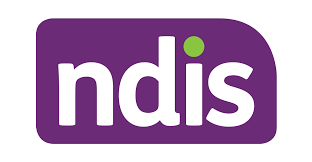- Home
- NDIS

|
Pre-planning fact sheet for Sound Therapy clients |
The NDIS National Disability Insurance Scheme is a new way of funding support services for people with disabilities who are under age 65, and not a veteran.
In order to claim Sound Therapy, you will need to put it in to your plan at your annual review.
Sound Therapy international is a non-registered provider for the NDIS
With your NDIS plan you will need to be self-managed, or to have a portion of your plan which is self-managed, in order to claim Sound Therapy.
- First you will need to set your goals and include them in your plan.
e.g. these might be:
- Relieve insomnia
- Relieve stress, anxiety or depression
- Relief from tinnitus
- Better hearing and understanding
- Improve coordination and balance
- Improve language and communication
- Improve learning or auditory processing difficulties
- Then you need to provide information on how Sound Therapy can meet these goals.
- Your Sound Therapy Consultant can give you an information sheet about this, relevant to your particular goal.
- Your Sound Therapy Consultant can help you to decide which Sound Therapy program will be best for your needs.
How to apply for NDIS funding:
- Check that you meet the initial eligibility criteria for the NDIS.
- If you are eligible contact the NDIA for an Access Request Form on 1800 800 110.
Hearing Loss and the NDIS
People with significant and permanent hearing loss can claim support under the NDIS if they need assistance with every day activities including family, work and social obligations.
- Obtain evidence of your hearing loss. You will need a hearing test from your audiologist.
- Apply for NDIS access using the Access Request Form.
- Develop your plan. If access is approved an NDIS planner will contact you to help establish your first personalised plan.
Funding is available for people with hearing loss for items such as:
- Hearing aids and accessories
- Alert systems e.g. baby monitors, smoke alarm, doorbell
- Bluetooth accessories
- Remote controls
- TV streamers
- FM systems
- Microphones
For hearing aids:
- Apply for access to the OHS (Office of Hearing Services) Program using the OHS Application for NDIS Participants and ensuring you include the required documentation.
- Make an appointment with your audiologist once you have your plan approved and access to the OHS granted. This will give you access to hearing aids and other assistive devices listed above.
For Sound Therapy:
Sound Therapy is not listed with the NDIS as a hearing therapy or assistive hearing device, as it doesn’t fit the criteria used in audiological service. However, you can claim Sound Therapy through your self-managed plan as part of a general category—i.e. “Other” or “Community Access” or “Improved daily living”.
You could also claim Sound Therapy under assistive hearing devices if your audiologist recommended that it be included in your plan.
Other disabilities and the NDIS
If you are receiving NDIS funding for any type of disability, you may determine that you have particular needs around stress, language skills, perception, sleep management, coordination, mood management, or other areas.
A mix of therapies is required to manage the effects complex and varied disabilities, and it is likely that Sound Therapy will help in some of these areas.
In your plan you can document how Sound Therapy will help to meet your particular needs. See the following examples to itemize needs that may be included in your self-managed NDIS plan.
Setting your NDIS Goals
When you apply for NDIS funding, you will be asked to identify Goals and Aspirations as part of your NDIS planning conversation.
Use the SMART acronym to ensure your goals are:
S – Specific
M – Measurable
A – Attainable
R – Relevant
T – Time-bound
It is also useful to describe your individual goals in a way that aligns them with the broader aims of the NDIS. For example, the scheme aims to support people with disabilities to increase their independence, enhance social and economic participation and develop their capacity to participate in the community.
Tips for your planning meeting:
- Take a support person with you
- Be well prepared
- Attend NDIS information sessions if you can
- Call the help line with any questions before hand
- Speak with other families
- Join one of the Facebook NDIS participant groups
- Make a folder containing details about every single thing that you spend money on around disability support
- Think about Goals and Aspirations for your plan
- Use the tables below to help you think through your goals
Community Access and Social Participation
The NDIS will fund supports to help you stay active in the community. This includes ensuring you can continue to interact with your community and engage with essential services and supports outside of your home.
Please feel free to click and download the guide on the right.
Improved Daily Living (Therapies/Allied Health)
The NDIS will fund “reasonable and necessary” therapeutic assessments, report and interventions related to the impact of your disability based on your functional ability.
These may include occupational therapy, physiotherapy, speech therapy, and sound therapy among others.
The NDIS will not fund therapeutic interventions that are related to the acute medical aspects of your disability, these are the responsibility of the Health System.
Please feel free to click and download the guide on the right.

